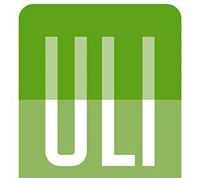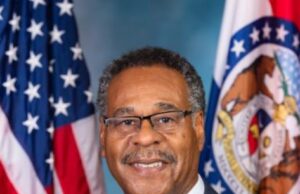USC Lusk Center For Real Estate Funds 10 Research Projects That Will Explore Housing And Urban Issues
The Impact of COVID-19 and Airbnb Are Among the Topics Featured In Lusk’s 2020-21 Research Program
LOS ANGELES – July 1, 2020 – RealEstateRama – The University of Southern California Lusk Center for Real Estate, a nationally-renowned real estate research center, has announced full or partial funding for 10 research proposals related to real estate and urban issues. The recipients were chosen from 21 applications submitted by USC faculty, postdoctoral researchers and Ph.D. candidates.
“We are honored to support some of the most brilliant minds on our campus while furthering the advancement of the world’s real estate knowledge,” said Jorge De la Roca, Lusk Center research director and assistant professor in USC Sol Price School of Public Policy. “At this critical time in our nation, this research will inform policymakers, industry and the public as we navigate the future.”
Given the COVID-19 pandemic’s deep impact on humanity, it is no surprise that its effect on demographics, housing and commercial real estate market is a popular topic among the pool of funded projects.
Neeraj Sood, a professor in Price School’s Department of Health Policy and Management, was awarded for his research that will help track the path of the pandemic. He will use surveys and U.S. Food and Drug Administration-approved serology testing to examine how COVID-19 is affecting residents of Los Angeles.
Andrii Parkhomenko, assistant professor at the Department of Finance and Business Economics, and Matthew J. Delventhal were selected for a project that focuses on how working from home has reshaped the structure of residence and employment within and across cities in the United State.
Annette Kim, associate professor and director of the Spatial Analysis Lab (SLAB), received funding for her work that will examine the commercial landscape in Los Angeles County in 2021, one year after the mandatory shutdown. Kim will extract Google Street View images of the area. Using a database of 9 million signs, she will assess businesses that have closed, opened or remain vacant. The goal of the paper is to identify factors of vulnerability and targets of public support.
Davide Proserpio, assistant professor of marketing, Kenneth King Stonier, assistant professor of business administration, and Lan Luo, associate professor of marketing, received support to study the “sharing economy”. They will look at how companies like Uber and Airbnb are changing how cities function and how they affect the economic activity of the cities they enter. The researchers aim to inform policymakers about how economic activity is redistributed and who benefits so that better policies can be employed.
Arnab Dutta and Gregory Randolph, Ph.D. students, will receive support for their research that examines a land transfer program that provides homestead plots to landless households in West Bengal, India. They will examine the effects of quality-adjusted homeownership, migration, development, and housing. The research will bring some awareness to the effectiveness of these policies in improving household welfare and reducing economic and social inequality in India.
Ayse Imrohoroglu, a professor with the USC Marshall School of Business, Department of Finance and Business Economics, has also received funding for her study that examines economic policies that may help reduce the time someone is homeless. She will compare the effectiveness of rental subsidies and borrowing constraints to the U.S. homeless population in 2020 with a population where one-third of the labor force loses their jobs in a short time. In this scenario, living in an economy with lax borrowing constraints does not help with rental defaults.
Clemens Pilgram, a Ph.D. student, was selected for a project focusing on housing transaction dynamics in the aftermath of nearby brush fires. The paper is designed to inform policy promoting awareness of environmental risks and improve the understanding of local dynamics of housing markets after natural disasters. Pilgram will analyze houses near brush fires to see if they receive a discounted rate and if residents will re-evaluate their desire to stay in their current homes given the danger.
Gary Painter, professor and chair of the Department of Public Policy, and Rebecca Smith, Ph.D. student, received support for their research proposal which takes a unique look at “redlining”. This research will test whether communities listed as red or yellow risk designation leads to a different neighborhood trajectory because of the different races of the residents. Painter and Smith will leverage the area description files for each city from the National Archives and then digitize the area descriptors that explain the local appraiser’s overall perception of the area. In addition, they will track population flows and segregation in the red and yellow listed communities using the 1970, 1990, and 2010 US Census.
Evgeny Burinskiy, a Ph.D. student with the USC Sol Price School of Public Policy, received funding for the research proposal as well. Burinskiy examines the ownership patterns of assumingly competitive rental housing markets by using data from the official property assessor databases of Los Angeles County, Milwaukee City, Boston, and Wake County. Also, Burinskiy will use restricted 2015–2017 American Housing Survey data on rents and unit locations to assess whether increased ownership concentrations are linked to higher rents.
Yi-Ju Hung, a Ph.D. student for USC Dornsife College of Letters, Arts and Sciences, received funding for the research proposal that aims to show that married women tend to have lower wages and employment than single women. The paper might provide evidence of how women’s roles in the household have changed.
To learn more about recent Lusk Center research, please visit https://lusk.usc.edu/research/call-for-proposals.
The University of Southern California Lusk Center for Real Estate seeks to advance real estate knowledge, inform business practice, and address timely issues that affect the real estate industry, the urban economy, and public policy. The Lusk Center produces relevant and timely real estate research, supports educational programs for students and executives, and convenes professional forums that bring together academics, students, business executives, and community leaders. For more information please visit www.usc.edu/lusk.
MEDIA CONTACTS:
Kent Barrett,
Cinnamon Thompson,
The Hoyt Organization, (310) 373-0103
















